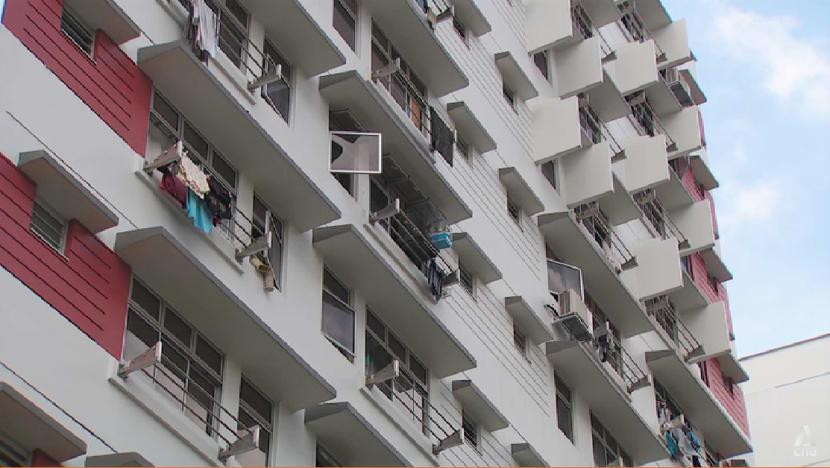Rise in demand for assisted co-living spaces in public housing flats, as more seniors prefer to 'age in place'
But limited flat supply and rising rental prices are putting the squeeze on providers offering such an alternative to nursing homes.

There is a rise in demand for assisted co-living spaces in public housing flats, as more seniors prefer to 'age in place'.
SINGAPORE: Seniors here are driving up the demand for assisted co-living arrangements in public housing flats, where tenants rent the units and share the caregivers.
The assisted-living models help to meet the government's goal of having more seniors “age in place”, where they live out their lives in the comfort of their own homes and communities.
But it will likely take a longer time before the concept is widely available, said observers, as limited flat supply and rising rental prices put the squeeze on providers offering this alternative to nursing homes.
LIVING TOGETHER WITH STRANGERS
Madam Ow Fong Keng, 79, is one such senior who shares her four-room Woodlands flat with two housemates.
The three elderly women started the year as strangers living together but now help to look after one another, under an arrangement with care provider Red Crowns Senior Living.
“If something happens to me, someone will know,” she said. “Because I'm quite a quiet person and I don't talk much.”
Red Crowns Senior Living rents properties on the open market and sublets them for use as an alternative to nursing homes.
Madam Ow rents her flat out to the business and they provide her an assisted-living option that includes company and care.
For tenants, it is at least S$2,000 a month, which covers rent and caregivers.
“We have a reporting system whereby the caregivers have to update us on the meals and the activities that are being done every day. And we have care coordinators to go around the different homes to visit them and to ensure the well-being of the residents,” said Ms Phern Tan, care manager at Red Crowns Senior Living.
“We also have some activities for them. The care coordinators will bring in some activities, and sometimes we also have outings for the residents as well.”
The business model is gaining traction, as more seniors choose to age in place.
About a year into starting the concept, the company has rented 30 flats and three condominiums for seniors.
HIGH RENT, LIMITED FLAT SUPPLY SQUEEZING OPERATORS
However, plans to scale up are being stymied by rising costs.
Singapore’s rental prices have been soaring over the last few years. Overall, HDB rentals grew 27.5 per cent year on year.
Renting a four-room flat in a neighbourhood such as Hougang, for instance, can easily cost at least S$4,000 a month.
Higher utility costs are also a problem, said observers.
Social service agency Fei Yue Community Services, which runs a government-subsidised assisted-living concept known as the Senior Group Home, said rising utility costs means they may have to increase the rent.
Tenants under this model currently pay up to S$200 a month after government subsidies.
The Senior Group Home aims to enable seniors aged 60 and above to co-reside independently in designated HDB flats retrofitted with elder-friendly features.
“There's a care coordinator who goes up once or twice a day to take basic health monitoring, such as blood pressure and temperature. And for those residents that need it, we can also arrange for meals on wheels, home personal care or laundry service,” said Ms Qian Leung, care coordinator at Fei Yue Community Services.
“When the residents need to go for a medical appointment, we also arrange for medical escort transport for them.”
One expert believes the demand for such assisted living arrangements will go up, but called for guidelines when there are more players in the market.
Professor Sumit Agarwal, head of the real estate department at the National University of Singapore, said: “I think the private sector may try to do it better, cater better, but obviously they are in the business of making money. So we will see. I mean, we know private sectors do things better, more efficiently, but we just don't want them to get greedy on the backs of the elderly.
“So hence, I say it should be allowed for the private sector to be in this area, but there should be some regulation, in terms of the space they provide, in terms of the care they provide, the quality of care and that could be monitored and regulated.”



















